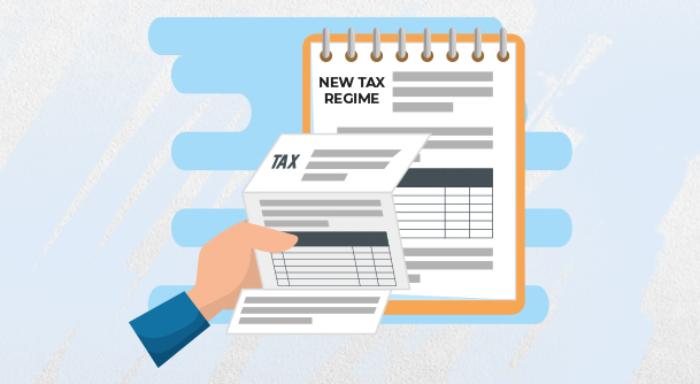How to File Income Tax for NRI?
Blog Title
1173 |
9/11/25 12:00 PM |
Filing income tax as a Non-Resident Indian (NRI) can seem complicated. With multiple rules, forms, and doubts about what’s taxable and what’s not, you may feel confused.
But do not worry. Whether it’s rental income or a TDS refund, this guide simplifies the process of filing an income tax return for you for a better investment plan.
Do You Need to File Income Tax Returns in India as an NRI?
Yes. But you only need to pay tax in India on income that is earned, accrued, or received in India. This includes income from rent from property in India, capital gains from Indian assets or interest on Indian bank accounts.
The income you earn abroad is not taxable in India. But you may need to report it in your country of residence. To do that, you must file an income tax return in India if your total taxable income in India exceeds the basic exemption limit. Even if your income is below this threshold, filing a return can help you claim refunds or carry forward losses.
So, for example, you’re working in the UAE. But you earn rental income from a flat in Delhi. Or receive dividends from Indian stocks. Then, you may have to file a return.
What Income is Taxable for NRIs?
As an NRI, you are liable to pay tax in India on:
- Salary received in India.
- For services rendered in India.
- Income from house property situated in India. For example, rental income.
- Capital gains from the sale of assets located in India. For example, shares, mutual funds, or property.
- Interest earned on fixed deposits and savings accounts in Indian banks. This excludes your NRE/FCNR accounts.
- Dividends from Indian companies. (though these are often tax-free up to a certain limit).
Note: The interest you earn on an NRE account is tax-free. However, interest from an NRO account is fully taxable.
Documents You’ll Need Before Filing ITR
Before you begin the filing process, keep the following documents:
- PAN card.
- A passport for proof of NRI status and travel details.
- Statements of all Indian bank accounts, including NRO, NRE, etc.
- Form 26AS (tax credit statement). This shows TDS deducted and reported.
- TDS certificates (Form 16/16A) from employers, banks, or tenants.
- Details of income earned or accrued in India (salary slips, rent agreements, sale deeds, etc.).
- Investment proofs for tax-saving investments (such as ELSS, PPF, etc.).
- Details of foreign assets and bank accounts (if required).
- Previous year’s tax returns (if applicable).
- Tax Residency Certificate (TRC) from your resident country (for DTAA claims)
Which ITR Form is Right for You as an NRI?
The most common forms of NRIs are:
ITR Form |
When to Use |
ITR-1 |
|
ITR-2 |
For NRIs with income from more than one house property, capital gains, or foreign assets. |
ITR-3 |
For NRIs earning income from business or profession in India. |
Step-by-Step Process to File ITR for NRIs
Determine Your Residential Status
Calculate the number of days you stayed in India during the financial year to confirm your NRI status. If you spent less than 182 days in India, you are considered an NRI for tax purposes.
Reconcile Income & Taxes with Form 26AS
Download Form 26AS from the Income Tax Department portal. Cross-check the TDS and income details with your own records to ensure accuracy.
Calculate Your Taxable Income
Add up all taxable incomes from Indian sources. Deduct eligible exemptions and deductions to arrive at your net taxable income.
Claim Double Taxation Avoidance Relief (if applicable)
If you have already paid tax on the same income in another country, check if India has a Double Taxation Avoidance Agreement (DTAA) with that country. Claim relief as per the treaty.
Register and Log In to the e-Filing Portal
Visit the Income Tax Department’s e-filing portal. Register using your PAN and follow the verification steps.
Select the Appropriate ITR Form
Choose the correct ITR form based on your income sources and fill in the required details.
Provide Bank Account and Asset Details
Enter details of your Indian bank accounts (preferably NRO/NRE accounts) and disclose assets and liabilities if required.
Upload Supporting Documents (if required)
While most returns don’t need attachments, keep digital copies ready in case of queries.
Review and Validate Your Return
Double-check all details, validate the form, and calculate your final tax liability.
Submit and Verify Your Return
Submit your ITR online. Complete the verification using Aadhaar OTP, net banking, or by sending a signed ITR-V to the Centralised Processing Centre within 120 days to 30 days from the date of filing the return.
Track the Status
After submission, you can track your return status and any refund due through the portal.
Tax Deductions and Benefits That You Can Claim as an NRI
Section 80C (Up to ₹1.5 lakh)
You can claim deductions on:
- Life insurance premiums (paid for yourself, spouse, or children).
- ULIPs (Unit Linked Insurance Plans).
- ELSS (Equity Linked Savings Schemes).
- Repayment of principal on the home loan.
Section 80D
Premiums paid for health insurance policies covering yourself or your parents.
Section 80E
Interest paid on education loans.
Section 80G
Donations to eligible charities.
Other Tax Saving Options
If you invest in tax-free options like NRE deposits or an existing PPF, you can lower your tax burden. However, be mindful that NRIs are not allowed to invest in certain instruments like National Savings Certificates (NSC) or Senior Citizens Savings Schemes.
Understanding DTAA: Avoiding Double Taxation
One of the major concerns NRIs face is being taxed twice, once in India and again in their country of residence. That’s where the Double Taxation Avoidance Agreement helps you.
India has signed DTAA treaties with more than 90 countries, including the UK, UAE, USA, Singapore, and Australia. Under DTAA:
- You can claim credit for taxes paid in India against your foreign tax liability.
- In some cases, income like interest or dividends is taxed at a reduced rate.
Final Thoughts
Being away from India doesn’t free you from your tax responsibilities here. In fact, for NRIs, the rules can get a bit more technical. But once you understand your residential status, what income is taxable, and the tax benefits available to you, the process becomes smoother.
File timely, use the right forms, and claim only what’s legitimate. If you're still unsure, consider seeking help from a tax expert who understands NRI taxation for the best investment plan. Your peace of mind is worth it.






